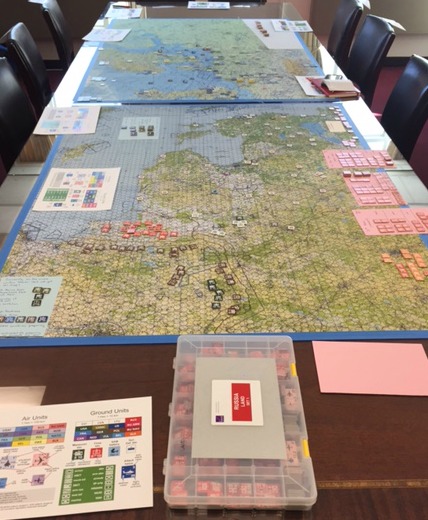On March 3, 2017, U.S. Helsinki Commission staff, joined by Congressional staff from various offices, took part in an interactive, informal simulation led by the RAND Corporation, which demonstrated RAND’s research on the shape and probable outcome of a near-term hypothetical Russian invasion of the Baltic states. The meeting followed the Commission’s December 2016 briefing, Baltic Security After the Warsaw NATO Summit, where RAND expert Michael Johnson presented the research and war-game approach exploring how a hypothetical Russian invasion of the Baltics would actually play out tactically.
During the event, Johnson and his team not only described their research but also demonstrated the advantages of the flexible platform of physical simulation in such a context. Attendees were able to “play out” military deployments on both sides of the board, representing both Russian and NATO forces. Using a physical model – as opposed to a digital platform – allowed attendees to pose hypothetical scenario-based questions to one another and to the RAND team, and to explore the defense outcomes on a representative military theater.
The RAND simulation demonstrated that, under current NATO postures, Russian forces would be likely to be able to take the capitals of all three Baltic States in 60 hours or less. More information on the war-gaming research by Michael W. Johnson and David A. Shlapak can be found in their report, Reinforcing Deterrence on NATO’s Eastern Flank: Wargaming the Defense of the Baltics (2016).






